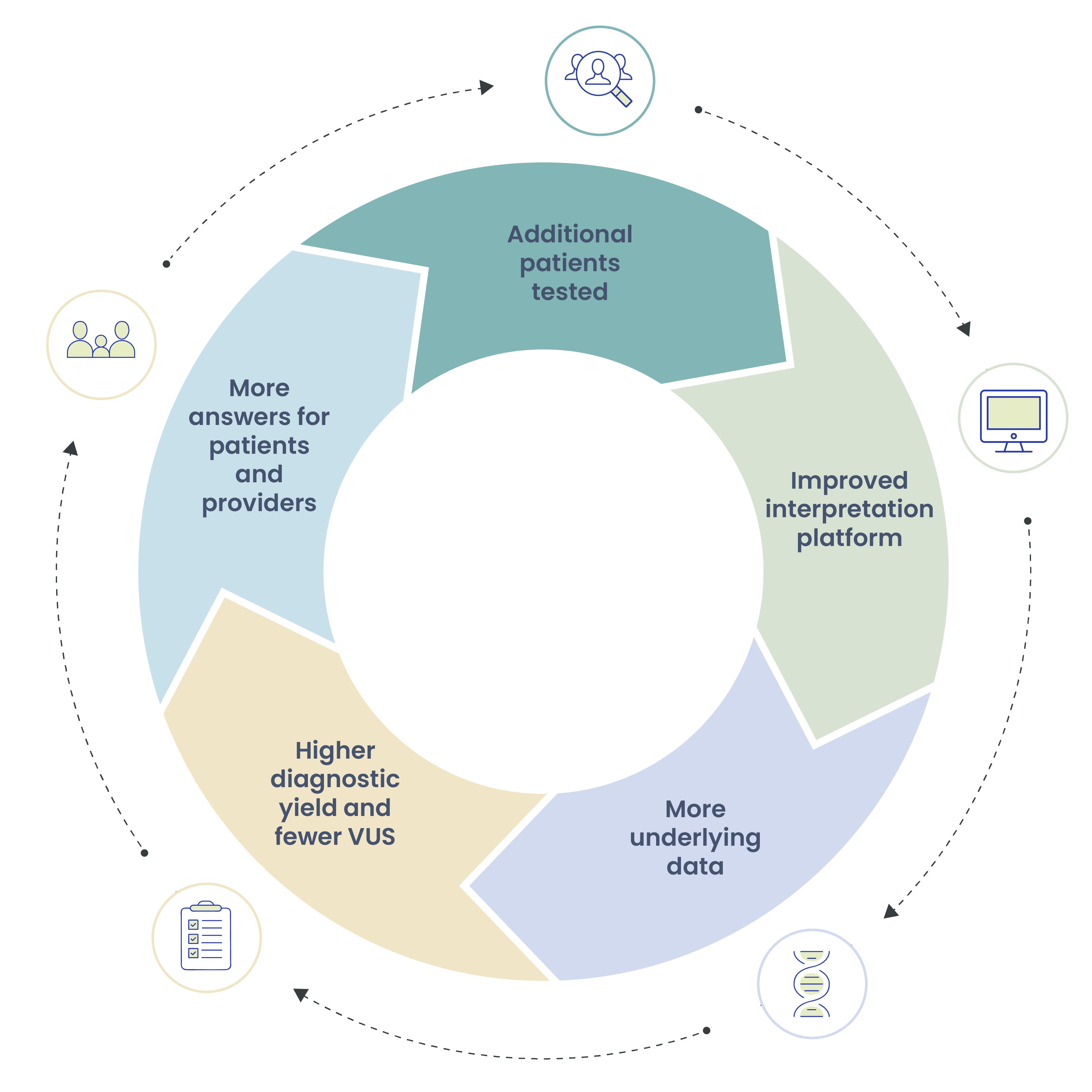We value your feedback! Take our quick client satisfaction survey here.
Meet Noah and Olivia. They found a diagnosis thanks to GeneDx’s unmatched dataset and commitment to finding answers for pediatric patients.
GeneDx definitively classifies Noah’s two variants in the CRELD1 gene as pathogenic. Armed with his GeneDx report, Noah’s geneticist diagnosed him with a CRELD1-related neurodevelopmental disorder associated with:
Patients with this disorder also often have heart arrhythmia (~50% of patients) and frequent infections.
More informed healthcare, including evaluation for cardiac arrhythmias
Realistic expectations about how Noah’s disease will likely evolve as he grows
Insight into the likelihood of having another child with the same disorder (25% risk)
Connection with other families though the CRELD1 patient advocacy group
Connection with researchers looking into improved treatment approaches
Through years of investment, we’ve built an unparalleled dataset that associates the symptoms and genetic variants of more than 1.5 million people—and counting.
The rich diversity of this genetic data means we can give more patients answers, thanks to all the patients tested before them. In Noah’s case, that meant Olivia and others like her.

Two years before Noah’s test arrived at the GeneDx lab, Olivia received exome testing for developmental delay, low muscle tone, and epilepsy.
At the time of her testing, Olivia’s two CRELD1 variants were classified as variants of uncertain significance. Both variants had been seen in healthy individuals, indicating each variant alone was insufficient to cause her symptoms.
Candidate gene finding identified during analysis and reported
GeneDx submits candidate gene finding to GeneMatcher
GeneDx collaborates with external clinicians and researchers with interest in same gene
GeneDx offers reanalysis and provides updated report with diagnostic results
Publication of cohort of patients enables candidate gene to be upgraded to disease-associated gene
Family consents to participate in research
After GeneDx submitted CRELD1 as candidate gene to GeneMatcher, an international collaboration studied multiple unrelated patients included with overlapping clinical features.
Combined with functional studies, the collaboration confirmed an association between Olivia’s variants and a genetic disorder causing developmental delay, epilepsy, and hypotonia.
Thanks to the study, Olivia (and dozens like her) received an updated GeneDx report with a definitive result, ending their diagnostic odyssey—and paving the way for Noah’s pathogenic result.

With every patient tested at GeneDx, our underlying interpretation platform gets smarter and we can offer more answers to more patients.
The impact increases every single day, with each patient helping future patients find answers.
Ready to find answers—and pay it forward?
* Fictionalized case study for illustrative purposes only